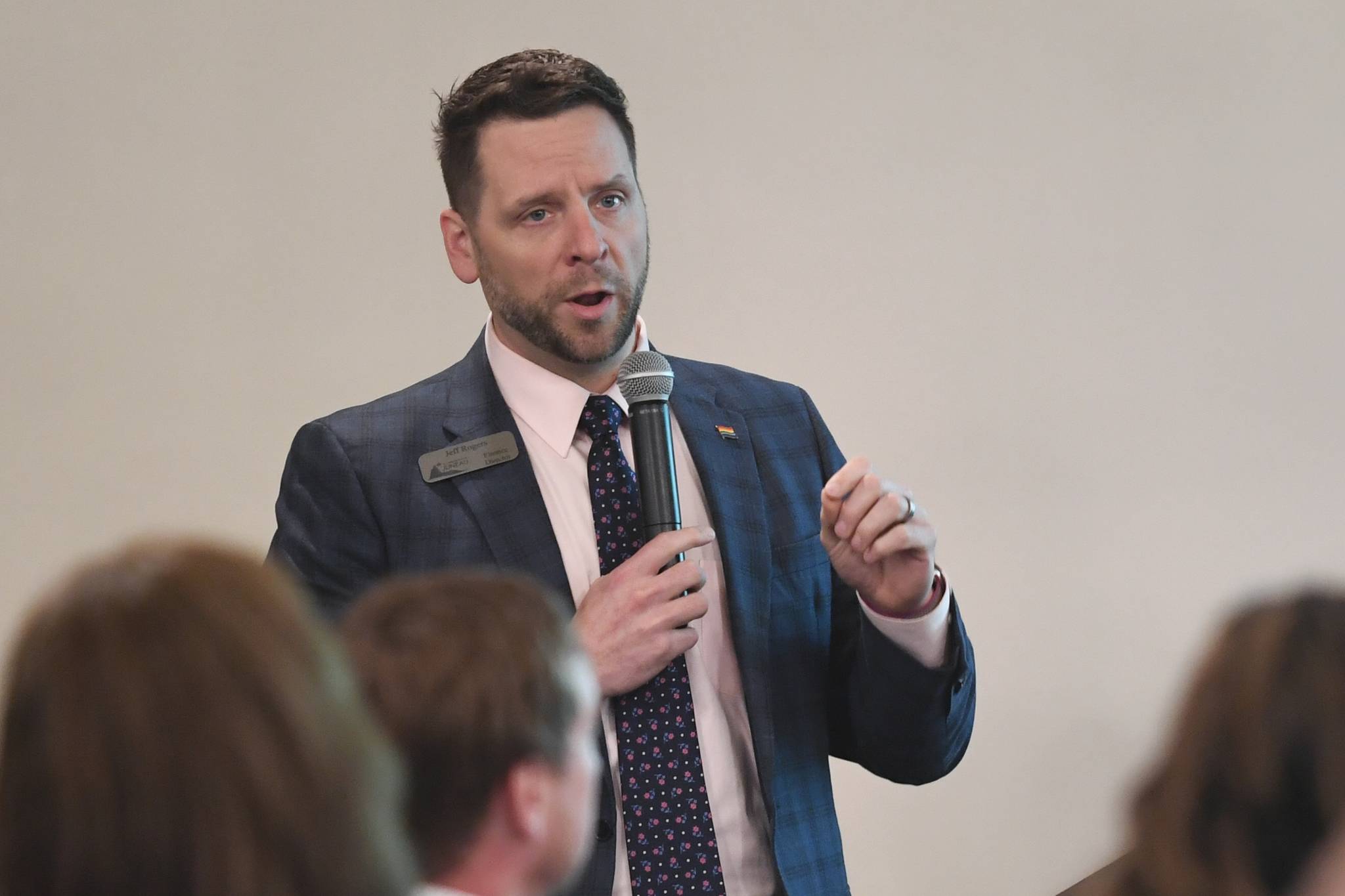Summary: It’s not yet a done deal, but Rogers seems confident the implementation will roll out smoothly. While nobody enjoys paying taxes, this is something many states are already doing and could provide the city with much need revenue for essential services.
Questions:
Reduction in other taxes?
I don’t know. There is a deficit and things like remote sales tax could fill those gaps. The city has a obligation for things like child care, as the city wrestles with those things my guess is that the assembly will look at those things.
Alaska has no sales tax, any other states?
Five, but none of those states allow local municipalities to have their own sales tax. MuniRevs has been very successful in Colorado, which has both state and local sales tax. So they have a lot of experience with various jurisdictional needs.
Will we pay the administrative costs for MuniRevs?
Yes, but I think the advantages of working through an existing, streamlined system is still worth it.
Wouldn’t it be easier for the state to collect tax? It seems like there’s a burden on local municipalities and vendors.
If the state wants to have a sales tax we would want to assume the state would remit a fair amount of taxes to local jurisdictions.
As we layer on tax costs, there’s no incentives to keep certain kinds of businesses in Juneau?
I don’t think it’s a fair characterization to say this a new tax, why would a customer buy from another vendor if they can get it for the same price? There’s a lot of sensitivity about taxes and the cost of living.
Will the out of borough exemption continue?
If you ship out of Juneau you will pay no Juneau taxes, but you will pay taxes to the jurisdiction you’re sending to. The advantage of a program like MuniRevs is that they will be doing the calculating for each local jurisdiction’s taxes.
Customer experience? Unintended consequences in jurisdictions where this already happens?
I’m sure buyers will find ways to (legally) avoid a tax, but there’s a point where trying to avoid a tax becomes more expensive than the tax. I don’t know that we’re going to see people’s behavior change in some significant ways. Every state is on it’s way to this.
12:47 p.m.
A “use tax ” is when a consumer is required to pay taxes on purchases made out of the borough. It’s really difficult to collect. The commission has decided to “punt the decision” on a use tax because it’s just too complicated, Rogers says.
But a use tax is something the commission is going to have to deal with eventually.
12:45 p.m.
We are trying to solve a systemic competitive inequity for Alaska-based businesses, Rogers says.
CBJ tax office did it’s own kind of “napkin math” on how much sales tax could be collected. Rogers says it’s about $1.5-2 million. But MuniRevs, the third party facilitator the city has contracted with, has estimated $3-5 million. Rogers says that he believes the city won’t see the full amount of potential tax collection for the first few years of the program.
We have had as a principal to apply the same standard to sellers in state as those in the lower 48, Rogers says.
12:40 p.m.
“It’s not the journey, but the destination,” Rogers says. A sale should only be taxed once. But there is a possibility that two tax jurisdictions might try to tax the same remote sale.
There’s source taxation and destination taxes (taxed where it’s from or where it arrives). Most remote sales are destination taxed.
Vendors must pay taxes if they cross a threshold over either $100,000 in sales or 100 sales, in most jurisdictions.
There’s an app for that, Rogers says. The vendor is a key piece for every state that have implemented taxes on remote sellers. There are third party companies which will facilitate collection and remittances between vendors and taxing jurisdictions.
Who is in control? The agreement makes very clear that cities get to control it’s own sales tax rates and it’s own exemptions, Rogers says. There’s no loss of local control on how much our sales tax is and who is to pay it.
12:25 p.m.
The Alaska Municipal League brought several cities together to work on a plan to establish a single statewide system compliant with the Wayfair decision. Alaska has no state sales tax and so it was left to municipalities to dictate the terms of a state-wide program.
But a Supreme Court case out of South Dakota, South Dakota vs. Wayfair, said that local sales taxes could be levied on online retailers even if a company has no physical presence in that state.
Buying local is complicated by the fact that buyers can often purchase the same items available from local vendors, often at a lower price and without local sales tax, Rogers says.
12:20 p.m.
There’s about a billion dollars in sales and a five percent sales tax, Rogers says, which produces about $50 million for the city each year.
There are many exemptions. We exempt $1.3 billion, mainly out of borough and retail exemptions.
Amazon started collecting taxes voluntarily collecting sales tax in places where the company felt it had a physical presence, Rogers says, and that money was sent to the city.
12:15 p.m.
This week at the Juneau Chamber of Commerce Luncheon, City and Borough of Juneau Finance Director Jeff Rogers talks about remote sellers sale tax.
The Assembly recently authorized the city to join the Alaska Remote Seller Sales Tax Commission which will work on developing laws for collecting taxes from sales conducted remotely, i.e. online via vendors like Amazon.
• Contact reporter Peter Segall at 523-2228 or psegall@juneauempire.com.

